3 Things Every Muslim Needs To Know About Seeking Knowledge
Seeking knowledge is obligatory upon every Muslim

Seeking knowledge is an important dimension of the Islamic faith. It is so important that Allah s.w.t. specifically chose to address it when He first revealed the Quranic message to Prophet Muhammad s.a.w.
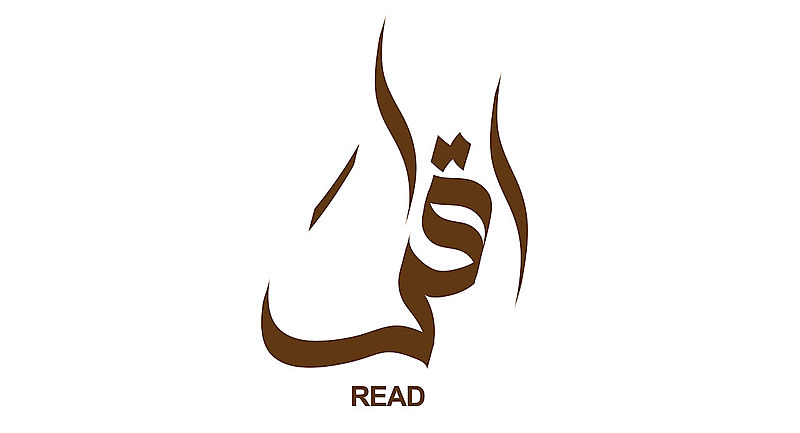 Seeking knowledge is obligatory upon every Muslim. The first word revealed to our beloved Prophet s.a.w was the word ‘Iqra’ - Read! Indeed, reading is an essential part of attaining knowledge. The commandment for us to read is essentially a call for us to seek knowledge, expand our understanding, analyse God’s creation and think and reflect on the universe and our existence.
Seeking knowledge is obligatory upon every Muslim. The first word revealed to our beloved Prophet s.a.w was the word ‘Iqra’ - Read! Indeed, reading is an essential part of attaining knowledge. The commandment for us to read is essentially a call for us to seek knowledge, expand our understanding, analyse God’s creation and think and reflect on the universe and our existence.
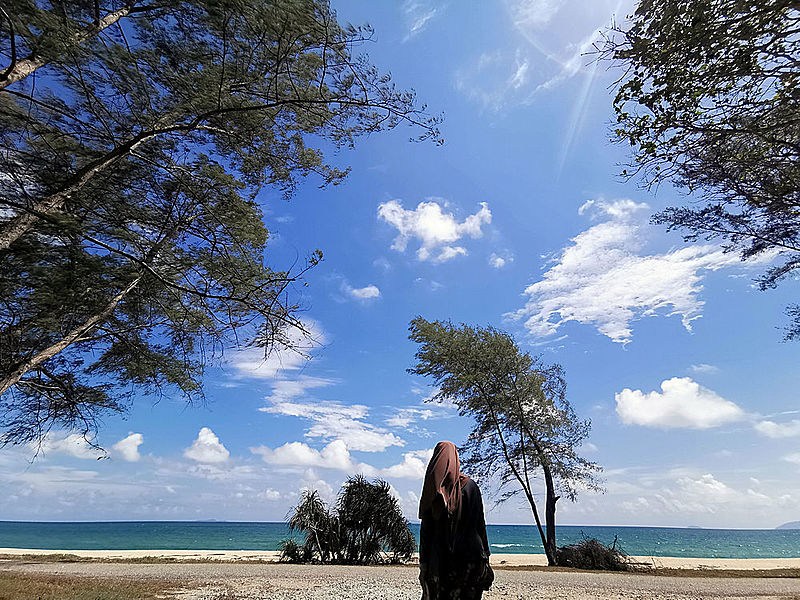
As recorded in the first five verses of Surah Al-’Alaq which marked the beginning of Rasulullah’s s.a.w. prophethood, Allah s.w.t introduced Himself as Rabb - interpreted by some scholars as “the educator”. In the same revelation, Allah s.w.t. informed men and women that He is the One who created (khalaqa) them (insan) and that He is also the One who teaches (‘alama) them what they knew not.
It is through the knowledge of our Lord, we are taught who and how we can submit and worship Him - the Only God. This shows that, indeed, we need to first and foremost be equipped with the knowledge of theology to know our God and study the arts and sciences of worshipping Him. Today, these are categorised under the knowledge of Tauhid and Fiqh. By knowledge, we can develop a deeper faith and become closer to our Creator. Here are other reasons why we should seek knowledge.
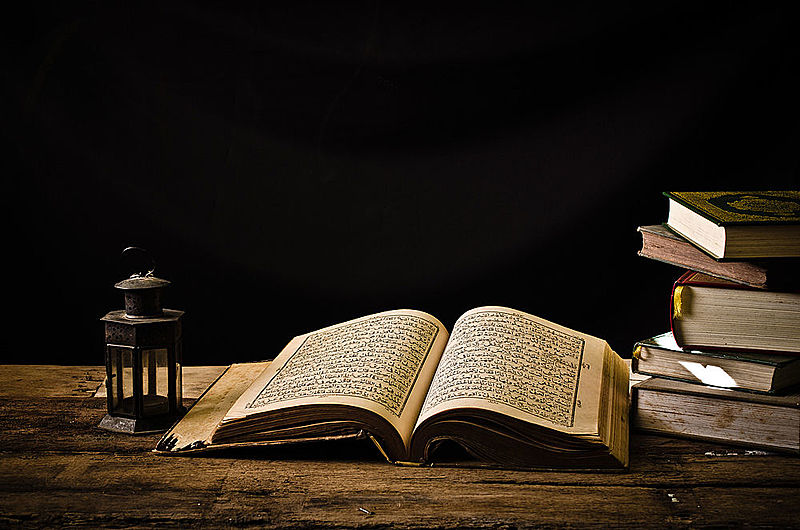
The importance of seeking knowledge has also been emphasised in the genesis of human creation. In Surah Al-Baqarah, verse 31, Allah s.w.t. revealed that He had taught Prophet Adam a.s. the names of things and that this intellectual domain is the one that separates humanity from the other creation. This effectively explains the reason why human beings are chosen among other creation to be His steward on earth (khalifah fi al-ard).
As we quest to be men and women of knowledge, here are some key considerations that we can take note in our pursuit of knowledge:
-
Begin with the right intention

Intention is the root of our worship and actions. In the famous hadith that many of us may have heard many times, Rasulullah s.a.w. mentioned,
إِنَّمَا الأَعْمَالُ بِالنِّيَّاتِ، وَإِنَّمَا لِكُلِّ امْرِئٍ مَا نَوَى، فَمَنْ كَانَتْ هِجْرَتُهُ إِلَى اللَّهِ وَرَسُولِهِ فَهِجْرَتُهُ إِلَى اللَّهِ وَرَسُولِهِ، وَمَنْ كَانَتْ هِجْرَتُهُ لدُنْيَا يُصِيبُهَا أَوْ امْرَأَةٍ يَنْكِحُهَا فَهِجْرَتُهُ إِلَى مَا هَاجَرَ إِلَيْهِ
“Indeed, an action starts with the intention. A person will be rewarded only for what he intended. Thus, he whose migration (hijrah) is for Allah and His Messenger, his migration is to Allah and His Messenger; but he whose migration was for some worldly thing he might gain, or for a partner he might marry, then his migration is to that which he migrated for.”
(Sahih Al-Bukhari & Muslim)
As a seeker of knowledge, building the right intention is important. One must intend to seek knowledge for the sake of Allah s.w.t, in pleasing Him. We seek knowledge so as to get ourselves closer to Allah s.w.t. The knowledge that will make us more humble as we rediscover our true selves.
On the other hand, we do not seek knowledge that will make us neglect the Hereafter and only fulfil our worldly pleasures. We do not seek knowledge that will be used to oppress and harm others. We do not seek knowledge that will make us intellectually arrogant.
The Prophet s.a.w. reminded us,
مَنْ تَعَلَّمَ عِلْمًا مِمَّا يُبْتَغَى بِهِ وَجْهُ اللَّهِ عَزَّوَجَلَّ لاَ يَتَعَلَّمُهُ إِلاَّ لِيُصِيبَ بِهِ عَرَضًا مِنَ الدُّنْيَا لَمْ يَجِدْ عَرْفَ الْجَنَّةِ يَوْمَ الْقِيَامَةِ
“If anyone acquires knowledge that should be sought for the sake of Allah, but instead he acquires it merely to get some worldly advantage, he will not experience the fragrance of Paradise.”
(Sunan Abu Daud)
Imam Al-Ghazali in his book, Ihya’ Ulumudin stressed that generally there are two types of knowledge; the useful knowledge and the harmful knowledge. Useful knowledge refers to “knowledge, which God has, through His Messengers, ordered to seek”, and seeking knowledge is obligatory for every Muslim. On the other hand, harmful knowledge is a form of knowledge that is considered delusional and not benefitting the humankind-at-large, and this must be avoided by every Muslim.
-
Be Equipped With Relevant Knowledge
As Muslims, it is important for us to master the foundation of our religious sciences. Seeking religious knowledge and being equipped with adequate religious understanding is important for us to practice our faith confidently.
As we embark on our quest to understand our faith, be cognisant that we obtain it from the right and trusted sources and references. There are a variety of ways to learn and study our faith today. From offline and in-person classes, we can choose classes and teachers that fit our interests and availability.
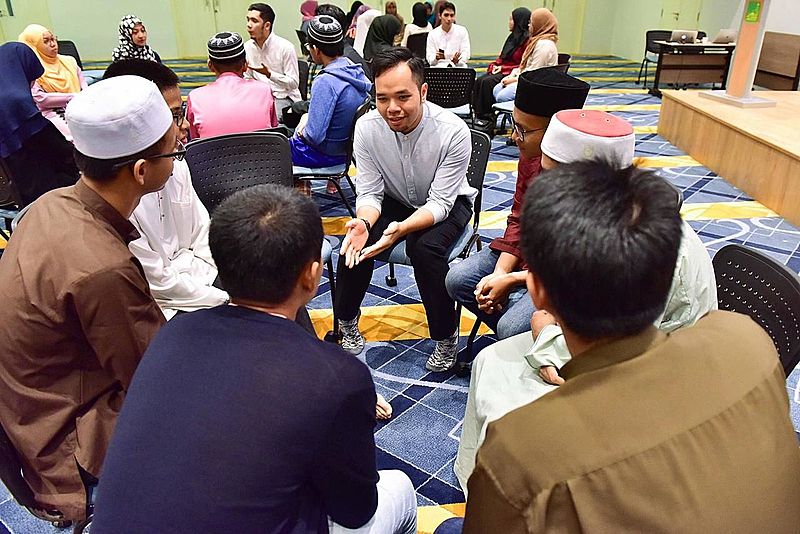
In ensuring we are studying with the right teachers and enrolled in an accredited religious study programme and/or centre, we can check here for the listing in Singapore. However, this listing is not 100% full proof. As students of knowledge, we have a duty to assess ourselves. It is always better to not limit ourselves to study with only one religious teacher and ignore others.
Having access to more than one religious teacher and platform will expand our understanding of our faith and may help to prevent any form of exclusivist thinking and mindset and obsessions. For more information on where you can find Islamic classes in Singapore, click here.
Beyond acquiring religious knowledge, we also need to master relevant knowledge and be equipped with the necessary skills to be someone who can contribute to our family and our community. Rasulullah s.a.w. mentioned in a masyhur (well-known and widely corroborated) hadith compiled by Imam At-Tabarani,
خير الناس أنفعهم للناس
“The best of people are those that benefit humanity.”
(Al-Mu’jam Al-Awsat)
We should not disregard the non-religious knowledge. They are fundamentally important for Muslims as well. We should not disconnect this form of knowledge from our Islamic teachings. Instead, we should find its link and establish the relationship with our faith as these perceived ‘worldly’ knowledge may intrinsically make us into better servants of Allah s.w.t.
We need this knowledge to understand our world and perform our roles here effectively. With the sincere intention of attaining Allah’s blessings, we acquire this knowledge to make us better servants in serving Him through serving His creation.
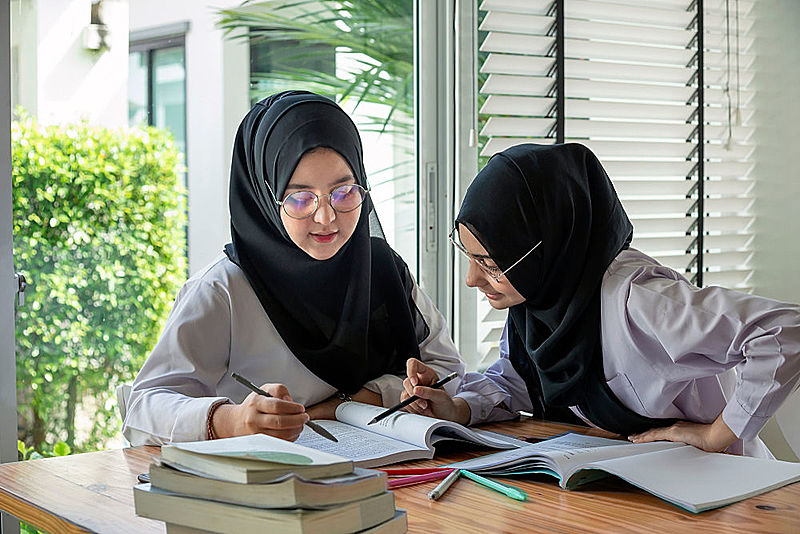
Imam Al-Ghazali in his Ihya’ Ulumuddin categorised knowledge into two types - one being al-Ulum al-Diniyyah or sciences of the religion which is acquired through revelations, while the other is al-Ulum al-Dunyawiyyah, acquired through human reasons, thoughts, experiments, analysis and discoveries. Essentially, both of these are important for a Muslim to lead a successful life in this physical world (al-ard) and in the eternal abode of the afterlife (al-akhirah).
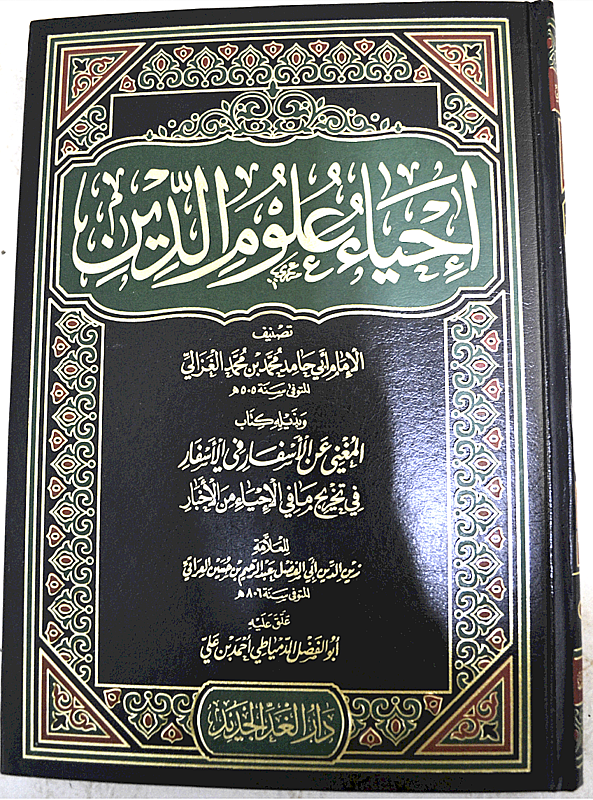
In complementing this theory of knowledge by Imam Al-Ghazali, Syeikh Taha Jabir al-Alwani proposed a knowledge framework where he called for the combination of two readings (jamaah baina qira’atain). He observed that Allah s.w.t. revealed two types of revelations of humankind.
The first ‘revelation/signs’’ (ayat) derived from the Quran (wahyu) and known as a textual revelation (ayat al-quraniyah) and the second is intellectual revelation (ayat al-kawniyah) acquired through careful observation, critical analysis, scientific inquiry and methodological learning.

The pinnacle of Islamic civilization in the past had witnessed the tremendous efforts of scientific inquiry undertaken by our scholars such as Ibn Sina, Al-Haytam and Al-Biruni. They were guided by the Quranic revelation and their thirst for scientific discoveries.
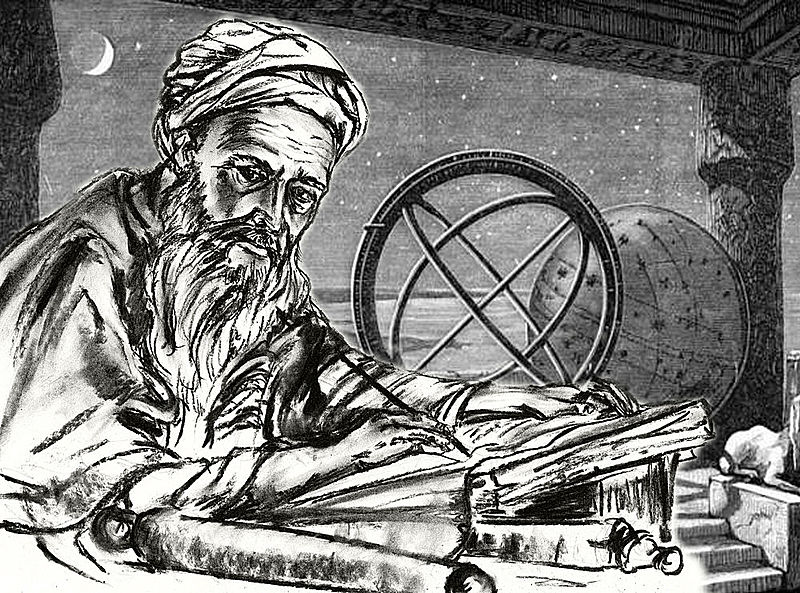
The Islamic world at that time had witnessed the development of science as one of the most important branches of knowledge. According to Seyyed Hossein Nasr in his book Islamic Science: an Illustrated Study, “the rise of the Islamic sciences and their later development is inconceivable without the ever-present spirit of the Islamic revelation”.
Today, let us reclaim our rich tradition of knowledge pursuits. The pursuits of contemporary knowledge and acquiring skills for modern day’s economy are not essentially un-Islamic and therefore, seen as a lower form of knowledge. With the right intention, we can ensure we utilise this knowledge that benefits ourselves, our family, our community and humanity-at-large, Insya’Allah.
-
Exercise Intellectual Humility
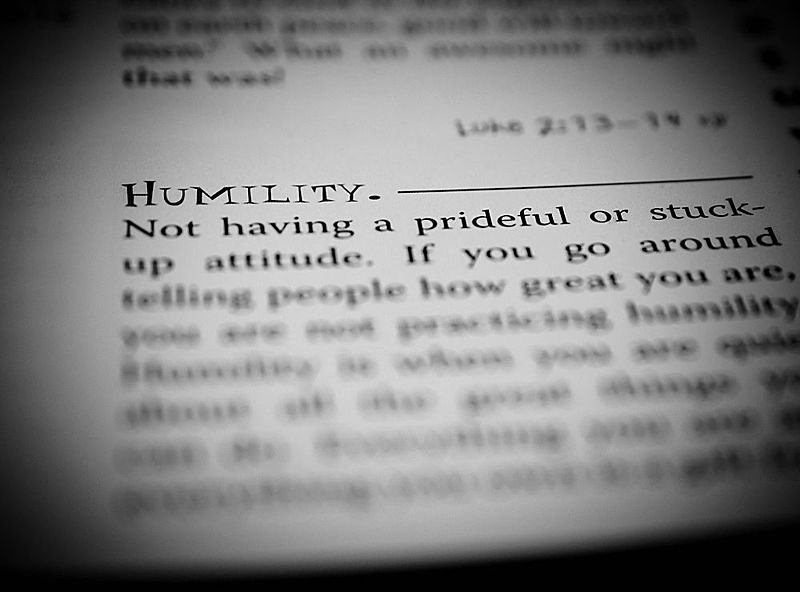
Intellectual humility is the attitude that seekers of knowledge should internalise and demonstrate in their lives. As we acquire more knowledge, there is a risk we may become intellectually arrogant and think we are better than others. We may become obsessed with the knowledge we have acquired such that we shut our doors from listening and learning from others. The illusion that we know everything is erroneous thinking and may lead us to the path of destruction. The challenge for us is to continue to exercise intellectual humility.
After all, we acknowledge that Allah s.w.t is the Master of Knowledge. The knowledge that we attain is a gift and blessing from Him. The vast knowledge in the universe can never be fully acquired by anyone, regardless of how high our IQ can be. Nonetheless, we continue to seek as much as we can and always be humble with the intelligence we are bestowed with.
We acknowledge that not all knowledge is bestowed to us. For example, in Surah al-Qalam, the chapter begins with the word ‘Nun’. According to the methodological approaches of the mufassirin (scholars of Quranic exegesis), there is no conclusive interpretation of the Quranic expression of ‘Nun’ and other similar expressions like ‘Ya Sin’, ‘Alif Lam Mim’ and many others. The word ‘Nun’ in Surah al-Qalam clearly symbolizes that there are limitations to the human mind in extracting the knowledge of God.
Indeed, to Allah s.w.t. belongs all the knowledge in heaven and the earth. We strive to attain the knowledge that empowers us into better beings and servants of Allah s.w.t. May Allah s.w.t. bless us with the tremendous gift of true and sacred knowledge and practice so that we may be with those He loves. Amin.
And Allah knows best.

